Texas’s bays & beaches are vital to our economy and outdoor traditions, supporting millions of jobs and billions in revenue. However, microplastic pollution, especially from local plastic production, can threaten marine life, public health, and our industries. The influx of plastic pellets along our coast is degrading natural beauty and risking the future of fishing and tourism. In a letter to Governor Abbott, Coastal Organizations are calling on the state to implement standards that curb plastic pollution and conserve Texas’s coastal legacy. Read the letter below.
Dear Governor Abbott,
We write to ask you to protect Texas’s fishing and tourism industries by supporting efforts to reduce the harmful effects of microplastics on our coastal ecosystems.
Texas beaches hold deep meaning for many residents, woven into family traditions, summer getaways, and cherished time spent outdoors. Beyond their cultural importance, these coastlines contribute billions of dollars each year to the state economy through tourism, commercial and recreational fishing, and the many local businesses that rely on a thriving, healthy shoreline.
Unfortunately, these vital industries are under increasing threat from microplastic pollution. Microplastics–particularly pre-production plastic pellets–are accumulating along Texas’s coast, harming marine life, degrading natural beauty, and jeopardizing public health and economic stability.
Texas is home to at least 36 plastic production facilities and is the largest manufacturer of pre-production plastics in the United States. These facilities are major contributors to plastic pellet pollution. Wildlife such as fish, turtles, and birds often ingest these plastics, leading to intestinal blockages, starvation, and exposure to harmful pollutants. The presence of microplastics in fish can reduce their growth and reproductive capacity, threatening the commercial and recreational fishing sectors by decreasing yield and production. Additionally, the potential for toxic chemical transfer from microplastics to humans via seafood consumption presents serious health concerns and may discourage people from purchasing Texas-caught seafood.
The economic consequences are severe. The outdoor recreation industry in Texas supports nearly 300,000 jobs, $14 billion in salaries, and $31 billion in total value added to the state’s economy. Yet, Texas beaches are swamped with ten times as much plastic trash as other Gulf Coast beaches–an alarming disparity that could deter tourists and harm local businesses.
As a first step, we urge you to direct the Texas Commission on Environmental Quality to adopt standards, as part of the current revision of the Surface Water Quality Standards, to prevent the discharge of preproduction plastics into our waterways.
Protecting our coastline is not just an environmental issue–it’s an economic imperative for Texas. We urge you to take meaningful action to preserve the natural resources, industries, and way of life that so many Texans depend on.
Sincerely,
Robby Byers
Executive Director, Coastal Conservation Association
Houston, Texas
Captain Scott Hickman
Founder and Chair, Charter Fisherman Association
Freeport, Texas
Captain Chuck Naiser
President, FlatsWorthy
Fulton, Texas
Marty Miles
Interim CEO, Galveston Park Board of Trustees
President, Galveston Housing and Lodging Association
Galveston, Texas
Aaron Baxter
President, Friends of Padre
Corpus Christi, Texas
John A. Zendt
President, Moody Gardens
Galveston, Texas
Jay Kleberg
Executive Director, Gulf Trust
Austin, Texas
Shane Cantrell
Owner/Operator, Galveston Sea Ventures
Galveston, Texas
Keith Miears
President, Texas Oyster Mariculture Association
Rockport, Texas
William Balboa
Executive Director, Matagorda Bay Foundation
Austin, Texas
Jacob Hupp
Government Affairs and Public Policy Manager, Galveston Bay Foundation
Kemah, Texas




